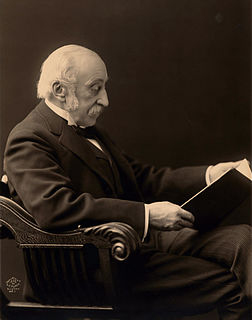A Quote by Oliver Goldsmith
In a polite age almost every person becomes a reader, and receives more instruction from the Press than the Pulpit.
Related Quotes
If NATURE has made any one thing less susceptible than all others of exclusive property, it is the action of the thinking power called an idea... No one possesses the less, because every other possess the whole of it. He who receives an idea from me, receives instruction himself without lessening mine; as he who lights his taper at mine, receives light without darkening me.
I also think pronunciation of a foreign tongue could be better taught than by demanding from the pupil those internal acrobatic feats that are generally impossible and always useless. This is the sort of instruction one receives : “Press your tonsils against the underside of your larynx. Then with the convex part of the septum curved upwards so as almost — but not quite — to touch the uvula, try with the tip of your tongue to reach your thyroid. Take a deep breath, and compress your glottis. Now without opening your lips say "Garoo".' And when you have done it they are not satisfied.
The voice of protest, of warning, of appeal is never more needed than when the clamor of fife and drum, echoed by the press and too often by the pulpit, is bidding all men fall in and keep step and obey in silence the tyrannous word of command. Then, more than ever, it is the duty of the good citizen not to be silent.
The narrative image has more dimensions than the painted image - literature is more complex than painting. Initially, this complexity represents a disadvantage, because the reader has to concentrate much more than when they're looking at a canvas. It gives the author, on the other hand, the opportunity to feel like a creator: they can offer their readers a world in which there's room for everyone, as every reader has their own reading and vision.
Psychologically I should say that a person becomes an adult at the point when he produces more than he consumes or earns more than he spends. This may be at the age of eighteen, twenty-five, or thirty-five. Some people remain unproductive and dependent children forever and therefore intellectually and emotionally immature.
I think a play can do almost anything, because it's also a static form, much more so than in a movie. In a movie you can move the scenery, you can do anything any way. A cartoon, happens in a limited amount of space and a limited amount of time, and you can only get so many words before the reader's gonna get impatient. All of these forms that I enjoy are in a sense a slight of hand, where you have to suggest much more than you really show. You have to, in a sense, seduce the reader and trick the reader or the audience into going with you.






































